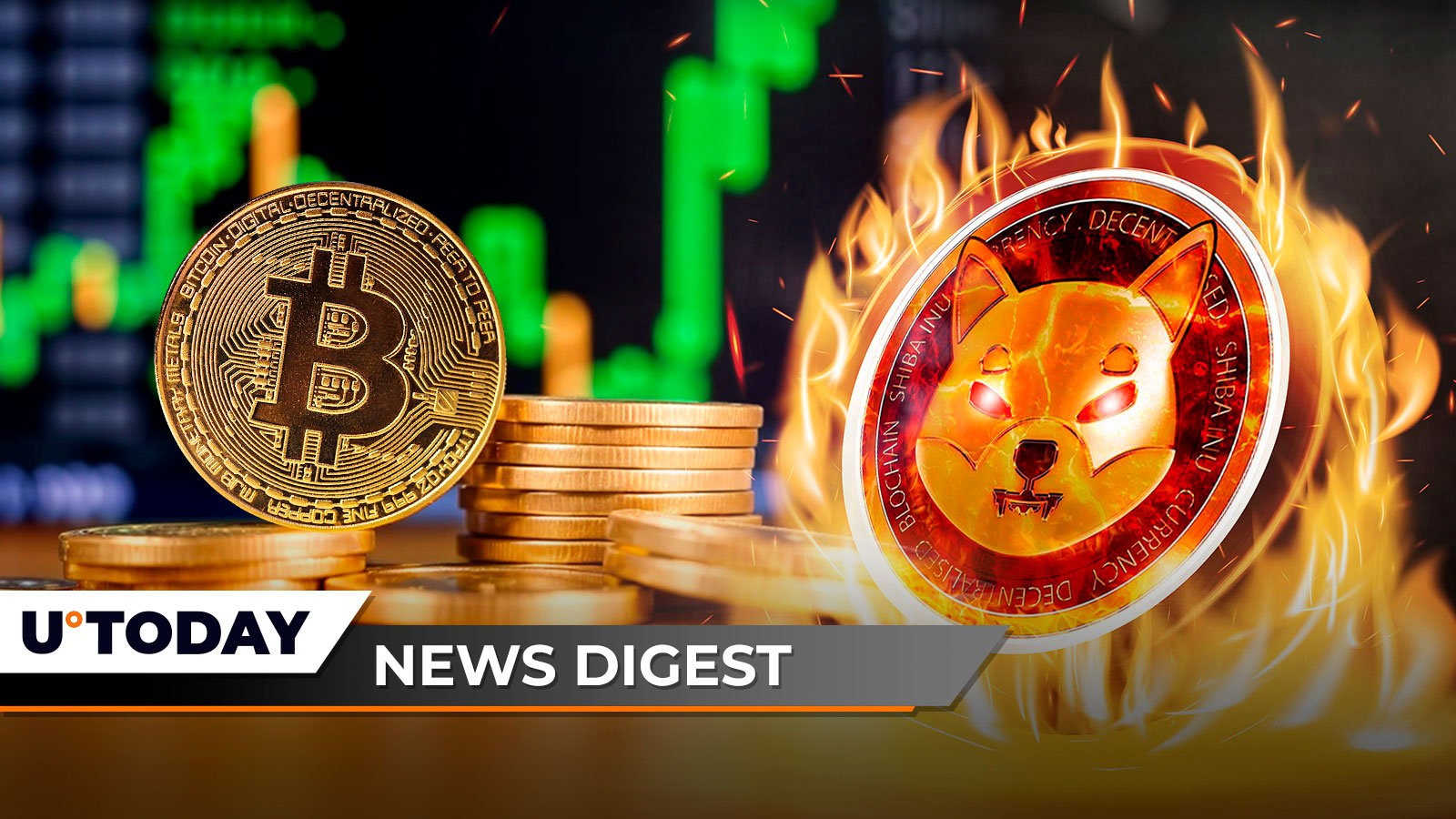copyright News and Market Evaluation: Remain Ahead with the most up to date Insights
copyright News and Market Evaluation: Remain Ahead with the most up to date Insights
Blog Article
An Extensive Evaluation of Current Events and Updates in the Evolving World of Digital Currencies Information
As the digital money landscape proceeds to evolve, recent changes in market characteristics and regulatory frameworks have caught the focus of capitalists and policymakers alike. The interplay between institutional financial investment and arising technologies such as DeFi and NFTs is not just improving standard financial paradigms yet additionally prompting a review of risk and chance. With governments grappling to establish balanced governing strategies, the inquiry emerges: just how will these growths affect the future trajectory of electronic currencies? Understanding the subtleties of this swiftly transforming setting is crucial for those looking to navigate the intricacies in advance.
Current Market Fads
Examining current market trends in electronic currencies discloses a landscape defined by volatility and rapid innovation. Over the past year, we have observed substantial variations in copyright appraisals, affected by variables such as market view, technological advancements, and macroeconomic problems. Bitcoin, for example, has experienced considerable price swings, mirroring both its condition as a market leader and its susceptibility to speculative trading.
Additionally, the development of decentralized money (DeFi) platforms and non-fungible tokens (NFTs) has actually reshaped the electronic money space, bring in a diverse variety of investors and customers. DeFi projects, particularly, have gotten momentum by offering ingenious monetary solutions without conventional middlemans, even more driving passion in blockchain innovations.
Institutional financial investment has likewise risen, with major firms and financial investment companies allocating considerable resources to digital possessions, signifying growing approval within mainstream money. This increase of institutional capital has added to the maturation of the market, bring about enhanced liquidity and the advancement of extra sophisticated trading platforms.
As the digital money ecosystem continues to develop, it is vital for capitalists and stakeholders to remain attentive, adapting to the dynamic setting formed by technical, economic, and social elements.
Governing Advancements
As the digital money market develops and draws in increased institutional financial investment, governing advancements are ending up being an essential element affecting its trajectory. Governments and regulative bodies around the world are aiming to establish frameworks that balance innovation with consumer defense and economic stability. The developing nature of digital assets demands a comprehensive approach to regulation, resolving problems such as market control, anti-money laundering (AML) conformity, and the category of cryptocurrencies.
In the United States, the Stocks and Exchange Commission (SEC) has actually intensified analysis of First Coin Offerings (ICOs) and digital asset exchanges, looking for clearness on which tokens qualify as protections. The European Union is progressing with its Markets in copyright-Assets (MiCA) regulation, intending to produce a unified regulative environment across participant states.
Countries such as China are taking extra extreme measures, fracturing down on copyright deals to mitigate monetary threats. Alternatively, nations like El Salvador are welcoming digital money, positioning them as lawful tender. These contrasting approaches highlight the worldwide regulatory landscape's intricacy, highlighting the need for collaboration among jurisdictions to cultivate a protected and lasting digital currency ecosystem. The future success of digital money will largely rely on how these regulative challenges are dealt with.

Technological Innovations
Technical technologies are regularly improving the landscape of digital currencies, driving innovations that boost safety and security, effectiveness, and customer experience. The development of blockchain innovation, for instance, has introduced scalable remedies such as sharding and layer-2 procedures, which considerably improve purchase speeds and reduce expenses. These advancements are important for accommodating the raising demand for digital deals and fostering more comprehensive adoption.
Moreover, the combination of expert system (AI) and artificial intelligence in the realm of electronic currencies is maximizing trading methods and risk administration. Algorithms can examine large datasets to recognize market patterns and anomalies, making it possible for even more educated decision-making for investors and investors alike.
Additionally, the increase of decentralized finance (DeFi) systems exhibits how technical advancement is changing standard financial systems. Smart contracts facilitate trustless deals and automate processes, removing middlemans and enhancing effectiveness.
In cybersecurity, the implementation of innovative cryptographic methods is bolstering the protection of digital budgets and exchanges, safeguarding individuals from possible violations. Overall, these technical developments are not just redefining operational standards however also leading the way for an extra accessible and protected monetary ecological community.
Investment Opportunities

Purchasing developed cryptocurrencies like Bitcoin and Ethereum remains prominent as a result of their broad approval and historical value. copyright news. Numerous capitalists are now checking out altcoins, which often display greater volatility and the potential for considerable returns. DeFi platforms, which facilitate lending, borrowing, and trading without middlemans, have attracted substantial resources, using ingenious monetary remedies and financial investment returns
Additionally, NFTs have changed the art and antiques market, enabling digital possession and provenance verification. This growing market has actually seen substantial investments from both people and institutions, showing a shift in exactly how value is viewed in the digital age.
As the digital money landscape remains to advance, capitalists must carry out detailed research more helpful hints study and continue to be alert (copyright news). Recognizing market patterns, regulatory adjustments, and technical innovations will certainly be crucial for making best use of financial investment chances in this dynamic area
Global Economic Impact
Just how dramatically can digital currencies improve the worldwide economy? The advent of electronic currencies more helpful hints holds transformative potential, influencing different facets of financial frameworks worldwide. As decentralized financial systems gain grip, they challenge traditional financial designs, enabling much faster, borderless transactions with lowered charges. This effectiveness could bring about increased financial inclusivity, especially in underbanked regions, fostering entrepreneurship and technology.
Additionally, digital currencies might affect financial policy by supplying reserve banks with new tools for economic management. Central Financial Institution Digital Currencies (CBDCs) could enhance transaction transparency and enhance the performance of monetary supply, straight impacting rising cost of living control and financial plan efficiency.
The increase of cryptocurrencies can additionally alter financial investment landscapes, attracting capital streams right into emerging markets and branching out portfolios. Nonetheless, the volatility associated with these electronic possessions introduces threats, necessitating robust regulative frameworks to protect investors and keep market security.

Conclusion
Finally, the advancing landscape of electronic currencies is characterized by considerable market volatility, raising institutional financial investment, and quick technological improvements. Regulatory structures are adjusting to balance advancement my response with consumer defense, while decentralized finance and non-fungible tokens proceed to improve typical financial structures. As stakeholders browse this dynamic setting, remaining educated about present trends and developments is necessary for maximizing arising opportunities and mitigating possible risks within the digital currency community.
Report this page